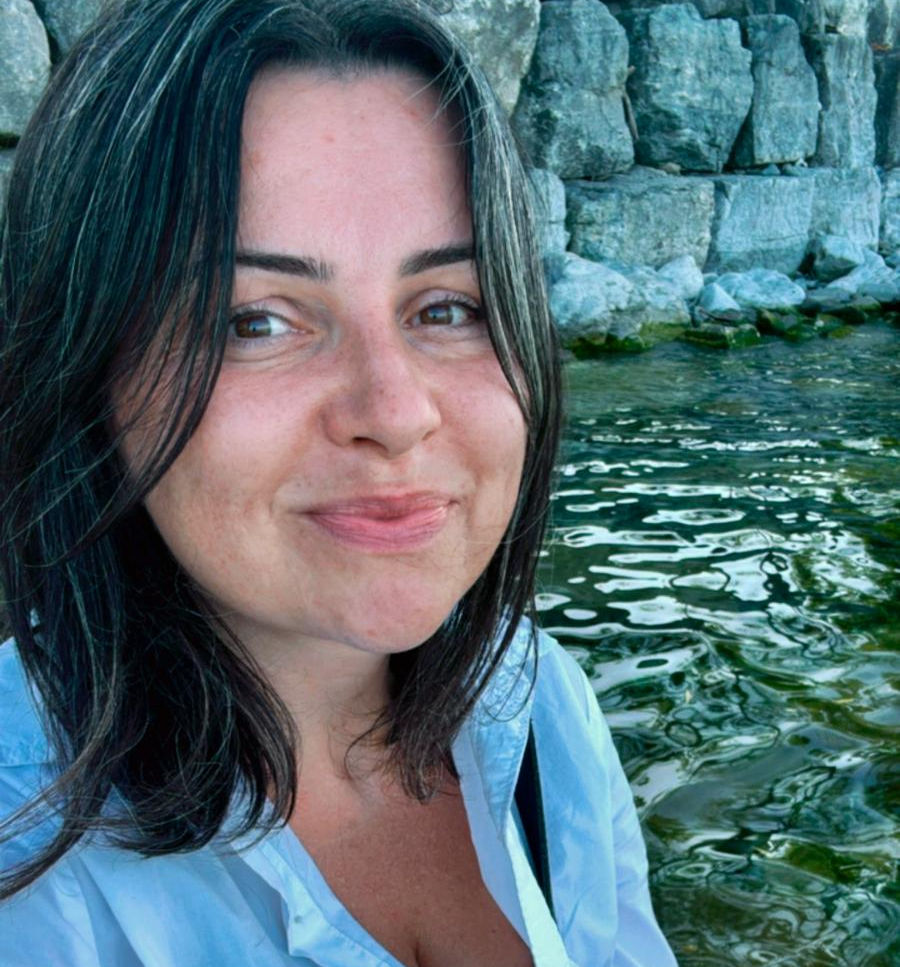Feeling Deeply: The Beauty and Weight of Sensitivity
- Alicja Pytlak

- Feb 5, 2025
- 4 min read
Updated: Feb 6, 2025
I have always been a deeply sensitive and empathetic person. I feel things in my body - sometimes before my mind even has a chance to process them. I can sense the emotions of those around me, pick up on unspoken pain, and see the weight of past experiences lingering in their energy. It is both a gift and a burden.
Over the last week, I have felt everything even more intensely. Maybe it’s because the world feels heavy. Maybe it’s because I am preparing for my performance at the Oakville Centre for the Performing Arts , where I will be sharing my story - one woven with lessons from my past, moments of pain, and the resilience that brought me here.
There’s a narrative I hear often: Leave the past behind. Move on. Focus on the future. And I am doing that - I'm still navigating the challenges, but I remain hopeful and committed to building a beautiful, fulfilling life for myself and my daughter. But the past doesn’t just disappear because we decide it should. It stays in the body, in the subconscious, in the nervous system. And as much as I would love to be "done" with feeling it, I’ve come to realize that healing isn’t about erasing pain. It’s about learning how to carry it with grace.
Sadness Is Not a Problem to Solve
There’s a difference between sadness and depression, yet they often get mistaken for each other. Brene Brown explains that while sadness is sometimes called a "depressed mood," it is not the same as clinical depression, which involves a persistent set of symptoms - loss of interest, fatigue, trouble concentrating, and more.
Similarly, sadness and grief are not the same thing. Grief encompasses a complex web of emotions - loss, longing, love, and memories. And yet, in a world that values productivity and positivity, sadness often gets treated as a flaw.
But sadness is not a flaw. It is part of being human.
Joseph P. Forgas, a professor of psychology, found that sadness can actually be beneficial. It can make us more aware, more generous, more resistant to errors in judgment. It can ground us in truth rather than illusion. Sadness, when allowed to move through us, can deepen our understanding of ourselves and others.
And yet, we live in a world that often tells us to push it aside. To be positive. To move forward. But what if feeling deeply is not something to "fix"?
What if sensitivity is not a weakness, but a profound source of connection?
The Power of Shared Stories
I was reminded of this recently during a conversation with a close friends - someone I met through our Community & Connection group, someone I trust deeply. Our schedules rarely align, but when they do, our conversations always feel like soul medicine.
That day, as we sat together, my friend shared a story - one of immense loss. The loss of a sibling. The loss of a child. And as I listened, I could feel the weight of it all, the grief still present in every word, in every pause.
And then I realized - what I was seeing was something I also carry within myself.
Later, I sent a message:
"Hearing your story, I felt the deep sadness of how much of that grief must still live inside you. But whenever we see something so clearly in someone else, it’s because we recognize it in ourselves. Last week, I could have cried nonstop. It reminded me that grief never really ends- it’s not just about losing someone, but also about losing parts of ourselves and being reborn again."
My friend responded:
"Crying is a release, not sadness - it’s connection. A silent conversation with those I’ve lost. I think we all find our own ways to carry our inner sorrows."
Their words stayed with me.
What if we stopped treating sadness as something to escape? What if we embraced it as a part of our story - one that doesn’t make us broken, but whole?
Supporting Each Other Instead of Shaming Our Differences
We all navigate emotions differently. Some people can disconnect from their past with ease and move forward without looking back. And that’s beautiful.
But there are others, like myself and many others I know, who feel deeply - who hold space for their emotions, who are profoundly affected by the world, who carry grief not as a burden, but as a part of their story.
Instead of trying to change each other, what if we met each other where we are?
What if the ones who are strong and resilient could offer support to the deeply sensitive, and the deeply sensitive could help the strong ones soften and feel more deeply?
Rather than pushing each other to be different, we could simply be there for one another.
Because feeling deeply is not a flaw. Sensitivity is not something to fix. And grief does not mean you are stuck - it means you have loved, and that love still echoes within you.
And maybe, just maybe, that’s something to honor, not erase.
This is the message I want to share today. If you’ve ever been told you’re “too sensitive” or felt like your emotions were a problem to solve, I hope this reminds you that you are not alone.
I would love to hear your thoughts - how do you process sadness? Do you see it as something to fix or something to embrace?
With Love,
Alicja
Some of the insights on sadness and grief are inspired by Brené Brown’s book Atlas of the Heart. If you're interested in exploring emotions more deeply, I highly recommend it!





Comments